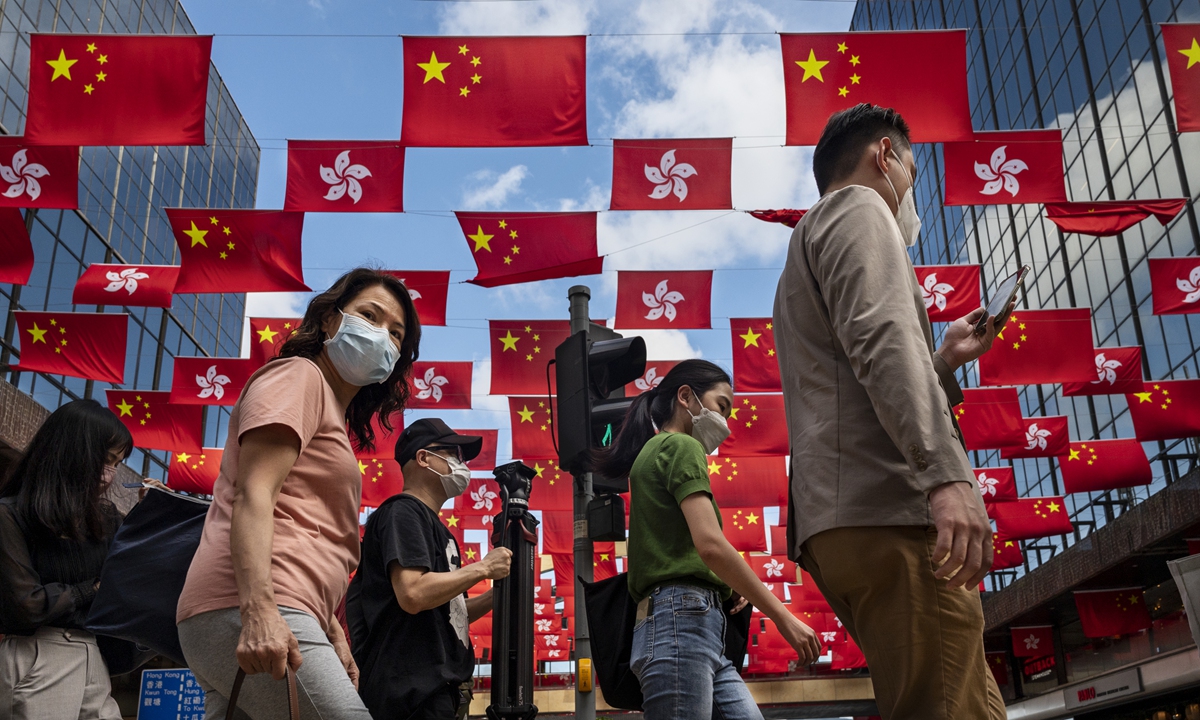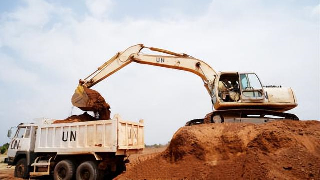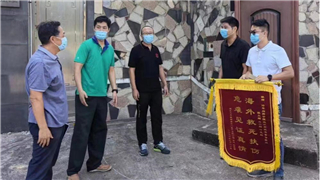
Editor's Note:
After weathering the storm of chaos brought about by social turmoil and COVID-19 in the past three years, Hong Kong has ushered in a new social and political environment. It welcomes the 25th anniversary of its return to the motherland on July 1, dispelling all the doubts and smears that some Westerners hold toward this city. How should we evaluate the practice of "one country, two systems" in Hong Kong for the past 25 years? As the "one country, two systems" enters the remaining 25-year period, what is the most urgent task for Hong Kong? Global Times (GT) reporter Bai Yunyi spoke with Lau Siu-kai (Lau), deputy head of the Chinese Association of Hong Kong & Macao Studies, in an exclusive interview.
GT: Today's Hong Kong has entered a key juncture that "concludes the past, envisions the future." Looking back in the past 25 years, what misunderstandings are there in Western narratives, or among some Hong Kong people themselves, about the city's history and present?
Lau: There's a very alarming situation in Hong Kong - most people have very little and a twisted understanding about the history of the city and of China as a whole. We noticed that Chinese books about Hong Kong's history are very scarce, and the existing ones mainly focus on society and culture. Rarely did those books view Hong Kong's history from the perspective of politics and governance. Thus, most Hong Kong people's understanding of the city is rooted from books written by Westerners, especially British.
Through those historical narratives, the West beautifies the legitimacy of colonial rule and that of unequal treaties. Some even attributed Hong Kong's achievements in the past 100 years to British-style rule of laissez-faire and non-intervention. Such narratives are very popular in Hong Kong, yet they are extremely biased and wrong, as they do not touch the essence of colonial rule, and turn a blind eye to the racial suppression, racism and violent rule the territory experienced.
Another prevalent misunderstanding about Hong Kong's history and presence is that Hong Kong, even after it has returned to the motherland, is still subject to "Western special protection" and a member of the Western camp. Such wrong ideas can be seen from laws made by the US, such as the US-Hong Kong Policy Act of 1992 and a slew of laws in recent years passed by US Congress that claim to safeguard Hong Kong's autonomy, human rights, freedom and democracy."
For so many years, the West apparently treated Hong Kong as a separate entity to the Chinese mainland, and the entity should serve Western interests. The US even believes it can interfere at will in Hong Kong-related affairs based on laws that made by the US, and deems itself as a "protector" of Hong Kong to question or even challenge the central government's policy of this city. Such misunderstandings, in essence, are to challenge the central government's sovereign rule over Hong Kong and try to turn the city into a subversion base.
GT: What are misperceptions in Western narratives about Hong Kong's political system?
Lau: Amongst the interpretations of "one country, two systems," the most ridiculous one is to regard the Sino-British Joint Declaration as the basis of the "one country, two systems" and the Basic Law. Such misunderstandings have made the UK, the US and some other Western countries believe that they shoulder "moral responsibility" over Hong Kong, and can hold China accountable for violating so-called international protocols, as they accused China of violating the joint declaration.
The West repeatedly claims that the joint declaration remains effective after Hong Kong returned to the motherland. However, this claim lacks legal basis. In fact, the Constitution is the legal basis of the "one country, two systems" arrangement and the Basic Law, not the joint declaration. First of all, the central government formulated the Basic Law for HKSAR according to the Constitution; second, the central government established the HKSAR in accordance with Article 31 of the Constitution.
The UK has no legal basis to excoriate China by simply citing the Sino-British Joint Declaration, not to mention other Western countries, such as the US. During negotiations between China and the UK, the central government always prioritized safeguarding national sovereignty, so how was it possible for the central government to allow the UK to interfere in Hong Kong's affairs after it was returned?
Another common misunderstanding is to see a "high degree of autonomy" under the "one country, two systems" as "complete autonomy," which is unlimited extension of the "high degree of autonomy," and to deny the central government's power and responsibilities in Hong Kong. Under such a twisted understanding, some Hong Kong people are unwilling to accept interpretations of law by the Standing Committee of the National People's Congress. Moreover, the central government's exercise of the power of supervision of the implementation of "one country, two systems" in HKSAR is also deemed as a "transgression," and decried by those people as "sabotaging Hong Kong's high degree of autonomy," and "demolishing one country, two systems."
Such misconceptions ignore the fact that Hong Kong's degree of autonomy is endowed by the central government, and it is the Communist Party of China (CPC) as well as the central government that created the "one country, two systems" arrangement. Thus, the central government can make laws about Hong Kong with the power endowed by the Constitution.

GT: Many Western media outlets claimed that Hong Kong's political reform faces dim prospects, which is proof that "one country, two systems" are jeopardized. How do you perceive such views?
Lau: This view again involves a misconception from the West concerning Hong Kong, wherein democratic development is the most important and even the sole goal of "one country, two systems" and the Basic Law. Based on such wrong ideas, some anti-China forces in Hong Kong violently attacked Hong Kong's political system under the guise of democracy. The violence was even harbored or praised by the West.
In fact, the primary goal of Hong Kong's political system is to safeguard national interests, defend national security, preserve the city's system and maintain its prosperity and stability. Democratic development is also a purpose of "one country, two systems," but it is a subordinate goal and should not stand in the way of achieving other more important goals.
Second, Hong Kong's electoral system does not stand alone; it is one component of the "one country, two systems." The most prominent feature of Western democratic elections is paying too much attention on the process, not the result. As long as the process is correct, then the result, even if it could bring catastrophic consequences, would be accepted. But the situation in Hong Kong is different. Hong Kong's election cannot breed the result that jeopardizes "one country, two systems."
Therefore, the future development of Hong Kong's democracy should thrive on the growing force of patriots and the shrinking number of anti-China external forces. It will also grow on the basis of diminishing national threats and booming prosperity.
GT: How do you evaluate the practice of "one country, two systems" in Hong Kong for the past 25 years?
Lau: We must go back to the very beginning: why we created the "one country, two systems" and the purpose it is designed to achieve.
The first goal is to reach national unity. There were no major conflicts during the process of Hong Kong returning to the motherland, and the "one country, two systems" made the international community have confidence in Hong Kong's future, so we achieved it.
The second is to maintain the original capitalist system and lifestyle in Hong Kong, and keep the city's prosperity. That goal was also realized. In some areas, Hong Kong goes higher, such as strengthening its status as a global financial and service center. Its adherence to the rule of law was widely recognized by the international community.
In general, although the central government exercises overall jurisdiction over Hong Kong, the city still enjoys a wide range of powers, and a high degree of autonomy.
Beijing holds the constitutional power endowed by the Constitution as well as the Basic Law, to ensure national security is guaranteed. In the past 25 years, the practice of "one country, two systems" has been successful in Hong Kong.
Why it is successful? I think it should attribute to the responsible attitude of the central government in implementing the system, as well as its cautious attitude in exercising constitutional power. In other words, the success of "one country, two systems" comes from the central government's determination, sincerity and its meticulous attitude. The central government has demonstrated great patience toward Hong Kong, even when faced with continuous provocation from rioters and foreign forces.
Of course, the system has faced challenges in the past 25 years, which include challenges from those who have tried to destabilize Hong Kong, challenged the authority of the central government, defied the Constitution and the Basic Law and continuously triggered political fights in the city.
Under such a backdrop, Hong Kong needs to expand its base of patriots in the future, so as to contain the antagonist forces from within and outside. Hong Kong's future development should also be expanded amid the backdrop of a Western crackdown, in order to better practice "one country, two systems."
GT: The "one country, two systems" arrangement, which is to remain unchanged for 50 years, will usher in the remaining 25 years. What is the most urgent task for Hong Kong for the next 25 years? And what should it watch out the most?
Lau: In the next few years, Hong Kong will face an unprecedented hostile external surrounding and a challenging internal situation.
On one hand, the US has upped the ante of cracking down on China. The previous development opportunities and "special treatment" Hong Kong gained from the West will be gradually taken away, and the West will exert harsher and more frequent crackdown and sanctions toward Hong Kong.
Under such circumstances, Hong Kong must find its new position, engage in the country's wider development plan, strengthen its economic connections with Asian countries, especially Southeast Asian countries and actively participate in the Belt and Road Initiative in order to gain wider development space and more momentum of economic and industrial growth.
On the other hand, Hong Kong's internal challenges have been simmering in the past 10 years by infighting. Now, the newest challenge comes from COVID-19 and the social conflicts which come with it, making problems concerning people's lives grow more and more serious.
This thorny situation requires a government that is powerful, patriotic, courageous, responsible, far-sighted and creative, to build prestige by achieving good results. Meanwhile, the HKSAR government should also include talents from within the government, society, the mainland and the world, to give them suitable positions and hone their skills.
In the past, Hong Kong under the British colonial rule and in the early years of its return was used to non-intervention and the governing style of "small government, big market." But over-stressing non-intervention no longer fits Hong Kong's status quo. In the future, the HKSAR government should be brave to make achievements and get rid of outmoded rules, regulations and organs that tie the government's hands. In this way, the HKSAR government can elevate its efficiency and speed up the process of problem-solving.
The most important thing is, future HKSAR governments should accept the central government's guidance and opinions during the process of governing the city. It should carry out carefully the central government's orders, and keep the same pace with the central government on major issues, such as safeguarding national security and pushing Hong Kong closer to the national development blueprint.
GT: Although Hong Kong has returned to the motherland for 25 years, many still believe Hong Kong needs a "second return," that is "the return of minds." What is your opinion on this issue? What should the HKSAR and Hong Kong society do to enhance Hong Kong people's recognition and sense of belonging to the motherland?
Lau: "The return of minds" can be understood as elevation of sense of recognition and belonging to the Chinese nation and the approval and support for the CPC. Meanwhile, "The return of minds" also includes the critical evaluation of Hong Kong's colonial past.
Looking back in history, the majority of former colonies experienced various degrees of "decolonization" education plans, especially among public servants. Yet for the purpose of stabilizing people's minds, the central government did not prioritize the work of "the return of minds" for a long period since 1997. It merely expected Hong Kong people not to do things that harm the city and the nation.
During this period of time, many public servants were resistant to ideological education in any form. Their resistance is based on those misconceptions: More than a century's colonial rule has deviated some people's mind from China; many feared that the ideological education can cause opposition within the government, society and families. Some officials believed that the government should never interfere in social affairs, let alone "remolding the thoughts."
The HKSAR government did not actively push forward work to win people's minds. In the meantime, hostile forces inside and outside the city invested vastly in this "battlefield," especially in the two areas of education and media. They created a "Hong Konger" identity that is at odds with "Chinese," and based on such a notion, they advocated separatism in various forms. They also sought to disrupt relations between Hong Kong and the central government, between Hong Kong people, the HKSAR government and people from the mainland. As time goes by, such situation posed a great threat to "one country, two systems" and to the stability and prosperity of Hong Kong.
After all those years, the central government has realized the importance and urgency of wining more hearts and minds, and is putting more and more emphasize on education work in areas such as the Constitution, the Basic Law and actual conditions of the country. In the last two or three years, the HKSAR has done a lot of work on pushing forward education on Chinese history, the Constitution, the Basic Law and national security, but the efforts and effects are far from enough.
Now, after the National Security Law for Hong Kong took effect, and electoral reform, the work of "the return of minds" has won powerful legal and systematic support, which removed obstacles for future implementation. For example, "decolonization" work can be conducted under the new political environment. With all those measures, and as time goes by, more and more Hong Kong people will realize their responsibilities and obligations as Chinese citizens and come to realize that Hong Kong and the mainland are "a community with shared interest."











